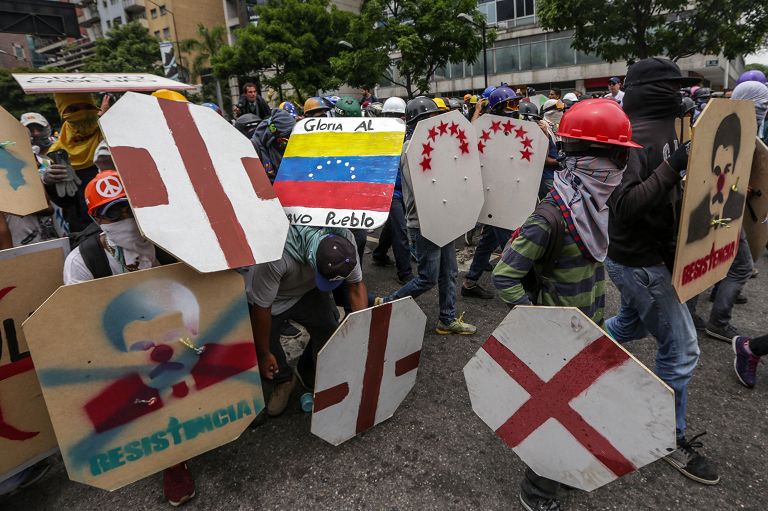The U.S. State Department published in March an investigation into human rights abuses and violations around the world and insisted on serious violations of fundamental guarantees of citizens in Nicaragua, Cuba and Venezuela. According to the report, Central American governments have been classified as "authoritarian governments" in which "for political reasons" executions, disappearances and torture against opponents have been recorded.
The document collects numerous reports covering the state of internationally recognized civil, individual, political and labour rights in 2022, based on "factual and objective information" from diplomats, NGOs and human rights activists, local officials and journalists from 198 countries.
The head of US diplomacy Antony Blinken, in a press conference, harshly accused the Cuban, Nicaraguan and Venezuelan regimes of imprisoning, torturing and executing its citizens. Blinken condemned Daniel Ortega's regime, calling it "an increasingly authoritarian state" responsible for "failing to take steps to identify, investigate, prosecute or punish officials who committed human rights violations, including those responsible for at least 355 murders and hundreds of disappearances," following violent protests in 2018, including the imprisonment and subsequent expulsion of more than 200 political prisoners last month. The report harshly questions Ortega's work for arresting 40 members of the opposition and for committing electoral fraud in 2021 that reconfirmed him in power by reinforcing the impunity of some of his 'loyal' officials guilty of abuses or violations of human rights.
CubaIn the section dedicated to Cuba, the report recalls that in July 2021, to demand an end to repression, the largest protests in recent decades against cruel arrests and detentions took place in several cities of the country. At the end of last year, some 180 protesters were charged with sedition, while 171 of them were sentenced to more than 10 years in prison. Following an implicit criticism of the one-party regime that reigns in the Caribbean island, Blinken said that "Cuba is an authoritarian state", highlighting the abuses that, in this case, are mainly against opponents of the Díaz-Canel government. The report notes that there are illegal or arbitrary executions, "torture and cruel treatment" of political dissidents and prisoners. The report points out that "the courts have imposed draconian prison sentences on hundreds of people for protesting for their rights." The endless list against human rights violations includes harsh and potentially life-threatening prison conditions, transnational repression against individuals in another country, serious problems with the independence of the judiciary, severe restrictions on freedom of expression and the media, including violence or threats, censorship, unjustified arrests or prosecutions of journalists, and enforcement of criminal defamation laws.
LaPresse
Opposition protests erupt into violent clashes with authorities
Venezuela
As in previous cases, the report on Venezuela was blunt in relation to human rights violations "for political reasons" allegedly perpetrated by the government of Nicolás Maduro, including "arbitrary deprivation of life and other unlawful killings," the report adds. Increasingly unpopular among citizens, the Maduro regime has entrusted civilian and military intelligence services and, to a lesser extent, pro-regime armed gangs, the "colectivos", to neutralize the political opposition and subjugate the population.
According to "Criminal Court data reported between January 2014 and November 2022, 15,777 civilians were detained for political reasons and 875 were unconstitutionally prosecuted before military criminal jurisdiction." The document also cites another source that has registered more than 9,400 people "subjected to arbitrary criminal proceedings for politically motivated precautionary measures."
The NGO 'Espacio Público' reports that in 2022 228 cases of violations of freedom of expression were reported including censorship, intimidation, verbal and judicial harassment, threats, assaults, one death and 14 arrests. As an example, he cites the case of Olga Mata and Florencio Gil, arrested in April after criticizing Diosdado Cabello and Cilia Flores (Maduro's wife) on social media. Both were charged by the attorney general with "inciting the murder of public figures" under the controversial 2017 "Anti-Hate Law." A Latin America that is kept red. In addition, since the beginning of March of this year, diplomatic relations between Nicaragua and the Holy See have been suspended. Pope Francis had openly expressed his "sadness" over the recent 26-year prison sentence to Nicaraguan Bishop Rolando Álvarez, calling Ortega's regime "grotesque totalitarian regime."

